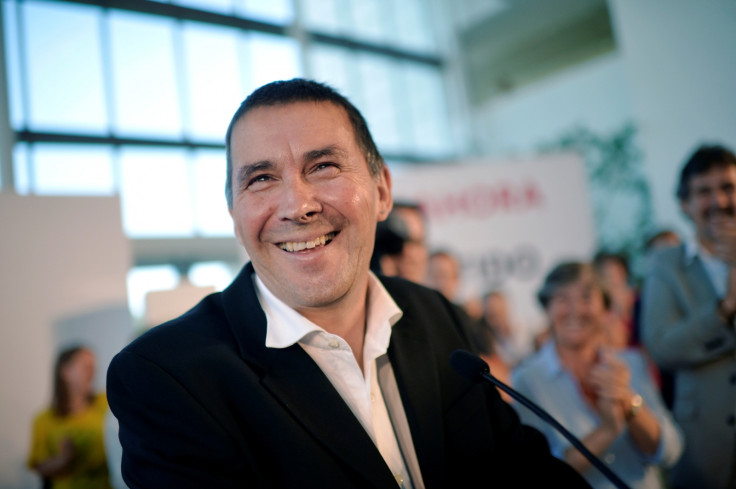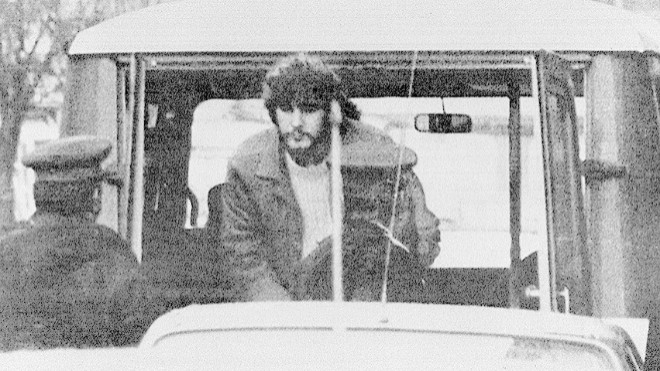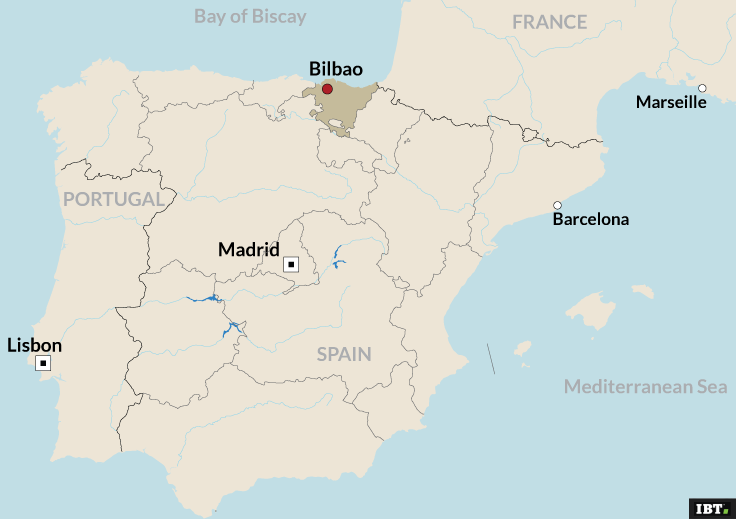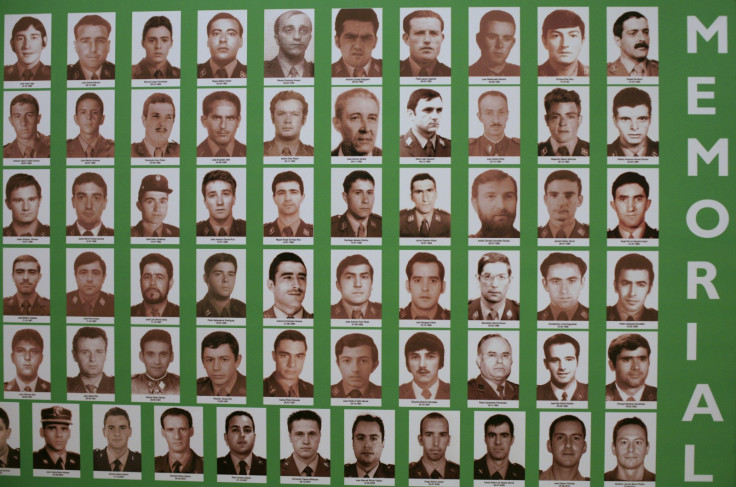From prisoner to president: Ex-ETA terrorist Arnaldo Otegi sets sights on Basque Country top job
After years in prison Otegi faces as an uphill political battle and has been barred from standing in regional elections.
Arnaldo Otegi has grown increasingly gaunt over his six-year-long imprisonment for attempting to reconstruct a political party linked to the Basque terror group Euskadi Ta Askatasuna (ETA). Greying and with deep lines etching his face, he is no longer the youthful idealist who was arrested in France in 1983 in relation to the kidnapping of Basque business leader Luis Abaitúa.
Released from prison in March, Otegi now faces an uphill political struggle. After decades sitting in court rooms and shuttled in and out of prison, he must convince Basques, who have emerged from the tumult of the 1970s and 1980s and the relentless bombings and assassinations of the period, that both he and his politics are still relevant.
Otegi insists that prison has done little to change him. If anything it has strengthened his resolve, and given him the time to focus his views. "What I think and say is that my beliefs have been reinforced inside prison," he said. "If there is something positive that comes from being in jail it is that you can take a cold look at things, from a distance."
Now head of the anti-capitalist Basque Sortu Party and chosen as the Presidential candidate for the Basque Country by the Euskal Herria Bildu coalition, there are those who would cast Otegi in the mould of Sinn Fein leader Gerry Adams. Adams, who has been accused of being a member of the IRA is now President of Sinn Fein and a member of Northern Ireland's devolved parliament. In the 1990s Otegi became one of the first members of ETA to call for disarmament. In 2006 he played a central role in peace talks with the Spanish government.
However, for the relatives of the 800 or so victims of ETA terrorism Otegi is at least an apologist for the group and at worst a murderer. To his political opponents he is known as clever and charismatic, a shrewd operator but one trapped by a politics of which he is a dying vestige.

Growing up in the immediate aftermath of the Spanish Civil War, Otegi's vision of the Basque Country was coloured by the prospect of armed struggle against facism. "We have to take into account that we come from families who lost the civil war, and we have to recall that Franco's dictatorship collaborated with the Nazi regime.
"The situation reached a point in which we did not see another option than armed struggle, not because we wanted, but because we did not see another way," he said.
"I always have respect for the victims, I never answer to their comments and insults. I accept it and I respect their pain"
- Arnaldo Otegi
Otegi's unshakable adversary is Madrid and the Partido Popular, currently the largest party in the Spanish parliament, and the conservative political descendent of the Franco regime. He sees ETA's ongoing peace process with Madrid, despite a ceasefire agreed in 2009, as a political convenience for Spain's national parties, an excuse to play Basque independence off as a fringe movement with violent tendencies.

"The Spanish state impedes the peace process and this is a strategy based on injustice. When a conflict reaches an end, the parties return home. It is my will that prisoners and exiles return home," he explained.

"This is an armed organisation with 50 years of activity that has shown their desire to disarm. However, the state continues to make police operations against it, rejecting the offer. It shows the state was more comfortable in the previous situation, during the conflict and do not want disarmament," he added.
Otegi sees the hand of the state behind a recent Supreme Court ruling that barred him from standing in regional elections on 25 September. He was disappointed by the decision but not surprised. "It is a political decision because they believe that our project is very dangerous for them," he said.
While he has been barred from standing for president of the Basque government, much of Otegi's political credibility rests on how Bildu fares in the elections. The coalition is undercut on its left flank by Podemos, a popular leftist party that has emerged in the wake of Spain's financial crisis, and polling behind the natural party of government in the devolved Basque Country, the moderate, pro-independence Basque National Party.
The Basque Country is an autonomous in northern Spain. The region was granted 'nationhood' in the Spanish constitution of 1987 but it remains a devolved part of the Spain.
One of the driving forces behind the Basque Country's strong national identity is its language which predates the arrival of Indo-European languages to the continent and is unique to the mountainous region.
The Basque Country has never had independence and at one time or another has always been ruled by imperial Spain or France. As the Spanish civil war began a short-lived autonomous state in some territories of the Basque country was abolished by occupying fascist forces.

However, Otegi remains optimistic and crucially believes he could do deals with both parties. "[The polls] point us as the second political force," he explained. The Basque National Party have also indicated they would deal with Bildu to pursue an independence referendum after the election.
Nevertheless the prospect of Otegi, such a divisive figure in the Basque Country, as President of the devolved government or even a nascent nation is a difficult prospect for many. "I always have respect for the victims, I never answer to their comments and insults. I accept it and I respect their pain," he said.
"I know that some sectors will never accept my leadership, but I think that most in the country accept that I can lead this country naturally," he said.
© Copyright IBTimes 2025. All rights reserved.






















